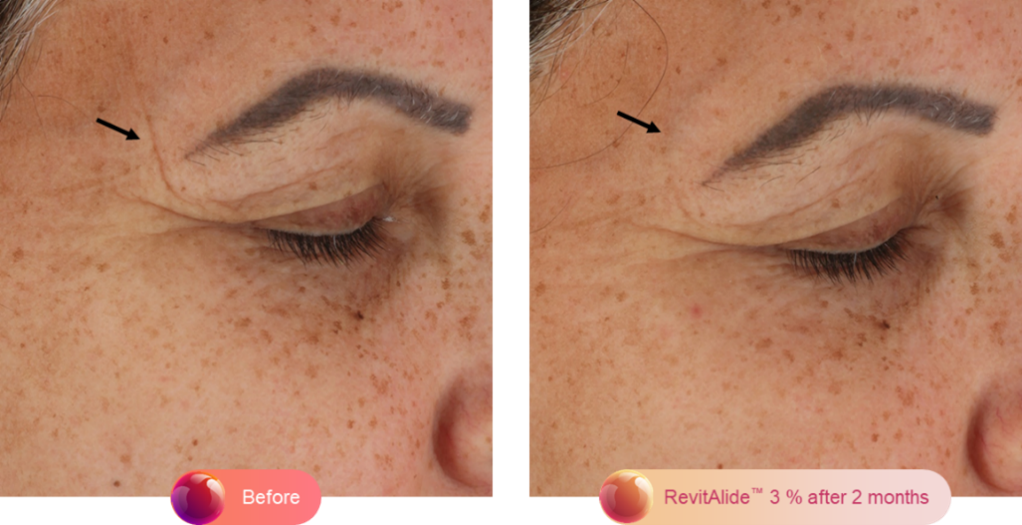What are the advantages of encapsulated retinol?
Retinol is as well known for its benefits to skin health as it is for its numerous drawbacks. That makes it a powerful active ingredient in cosmetics but a tricky one to work with in formulation. Fortunately, encapsulated retinol solves many of those issues.
How does retinol work in the skin?
Retinol is famous in the cosmetic industry thanks to its multi-function activity that helps achieve a healthy, glowing and smooth skin appearance. In the skin, retinol speeds up cell renewal. It modulates skin cell metabolism by increasing the neosynthesis of extracellular matrix components such as collagen and by reducing the production of ECM degradation enzymes as well as melanin content in the skin. As a result, this hero ingredient reinforces the skin barrier, reduces wrinkles and blemishes, brightens the skin tone and even stimulates hair growth.
That’s a huge amount of benefits for just one active ingredient and is a key reason why retinol is such a popular active ingredient in skin care. The global retinol market size was valued at USD 1.33 billion in 2022 and is expected to grow at a compound annual growth rate (CAGR) of 3.8% from 2023 to 2030.
Why is Retinol a tricky ingredient?
Retinol features several drawbacks limiting its cosmetic use. It is unstable to environmental conditions such as UV, air and heat exposure and must be handled and stored in specific conditions. This instability has a negative impact on the cutaneous bioavailability of retinol reducing the efficacy of skincare products.
Retinol also exhibits skin irritation potential commonly known as retinol burn or retinisation. Depending on skin type and active retinol concentration, retinol burn may happen when people use retinoid for the first time resulting in an irritant contact dermatitis also known as retinoid dermatitis. In the EU, the SCCS (2016) considered retinol as safe at a maximum of 0.05 % in body products and at a maximum concentration of 0.3 % in leave-on/rinsed-off hand or face products.
Why is encapsulated retinol better?
Encapsulation technologies are solutions used in the cosmetic industry to deal with formulation challenges and/or to potentiate the efficacy of cosmetic active ingredients.

ReVitAlide™ is our star encapsulated retinol product at Croda Beauty. It is a water-dispersible suspension designed to respond to market demand for stable, easy-to-formulate, highly bioavailable and well-tolerated retinol. This encapsulated form developed in collaboration with Inventiva features improved stability of retinol as well as high skin bioavailability. Clinical evaluation showed good skin tolerance when using ReVitAlide. It reduces wrinkle appearance and prevents their formation.
Stability studies performed against free retinol show that encapsulation protects retinol from UV, air and temperature exposure, making it easier to formulate with. Our exclusive carrier system also makes the retinol highly bioavailable and well-tolerated. Transcutaneous penetration studies showed controlled release of retinol. Toxicological and clinical studies demonstrated good skin tolerance. After two months of application, encapsulated retinol confirmed the expected wrinkle reduction even at a three times lower concentration than recommended.
 Featured
Featured